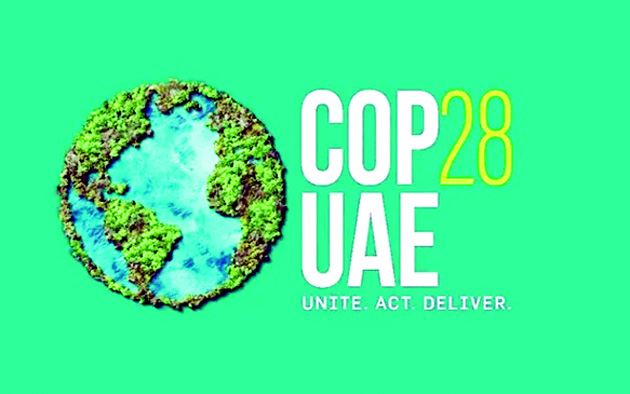Anoop Khajuria
I have been attending Conference of Parties for quite some time now but never saw such a large attendance of people from all sections of the societies from across the World as was in COP28 at Dubai. It was four times bigger than the COP26 held at Glasgow. The attendance crossed a mammoth number with over 100,000 registered participants visiting Dubai City Expo 2020 . Historically, after two weeks of intense negotiations, the COP would be extended for another day and same was done here in Dubai. Negotiating parties came out with an extra deal to save the climate from the catastrophic impacts of climate change.
1.5 degree C is the mean temperature rise above the pre-industrial era levels that parties (Countries) have agreed to maintain in the historic Paris Agreement in 2015 with the target to be achieved by 2030 and COP28 was supposed to take stock of the progress made in implementing the Paris agreement to hold the mean temperature rise well below the 2 degree C levels. The conference was marred with controversies even before its start. The President Dr. Sultan Al Jaber, though a well-articulated person is also industry minister of UAE and is the Chief Executive of one of World’s leading oil companies, Abu Dhabi National Oil Company. As the President of COP28 of the United Nations Framework Convention on Climate Change (UNFCCC), had a stupendous task of leading the negotiations among the parties to build a consensus for saving the planet from disasters. A certain lobby and leading civil societies opposed his Presidency. However, the COP28 progressed with the hope that there may be some headway to GHG emissions which must decline 43 percent before 2030 as per the Intergovernmental panel on climate change (IPCC)and big oil question be debated to the extent of phasing it out.
However, COP28 will be seen ushering a new hope. Though the final text released by the COP Presidency has no landmark decisions mentioning of phasing out fossil fuels but emphasis on need for adaptations finance, and operationalization of “Loss & Damage Fund” are seen broadly as positive for many countries. The 21 page final text release on Wednesday, mentions the need to accelerate efforts towards phase down of unabated coal power and it also calls for transitioning away from fossil fuels and phasing out of inefficient fossil fuel subsidies that do not address energy poverty of just transition. The phasing out of coal has already been opposed by India and it has a set target of achieving net-zero emissions by 2070. Natural gas has been termed as the transitional fuel though it contributes immensely to the CO2 emissions and also its extraction releases Methane in the atmosphere that accounts for 25 per cent of Global Warming.
India has been in the fore-front of renewable energy and recognition of the need for tripling the Global Renewable Energy and doubling the global average annual rate of energy efficiency is a direct takeaway from G-20 meetings. The reference to the 6th assessment report of IPCC that anthropogenic activities (Human activities) have unequivocally caused global warming of about 1.1 degrees C.
From Dubai, we will move to Baku, the capital of Azerbaijan – another oil producing country besides the Caspian sea for COP29 for yet another hotly debated climate negotiations for saving the planet from the impending disasters with ever increasing frequency.
(The author is a team member of Asia Pacific Group of Journalists and Broadcasters for COP28 Dubai)
Trending Now
E-Paper


